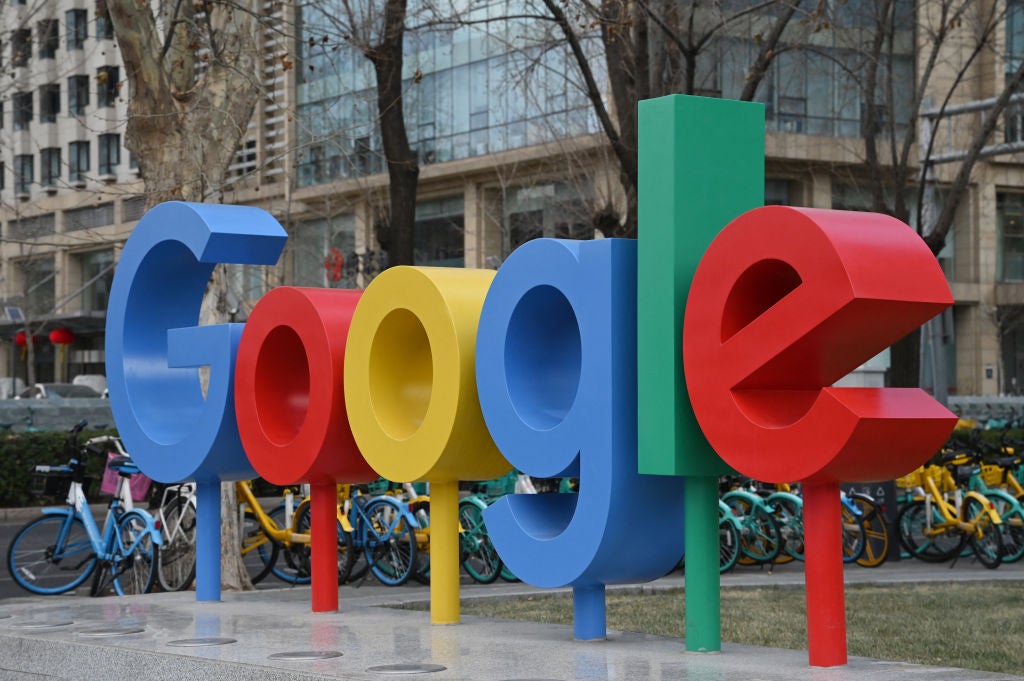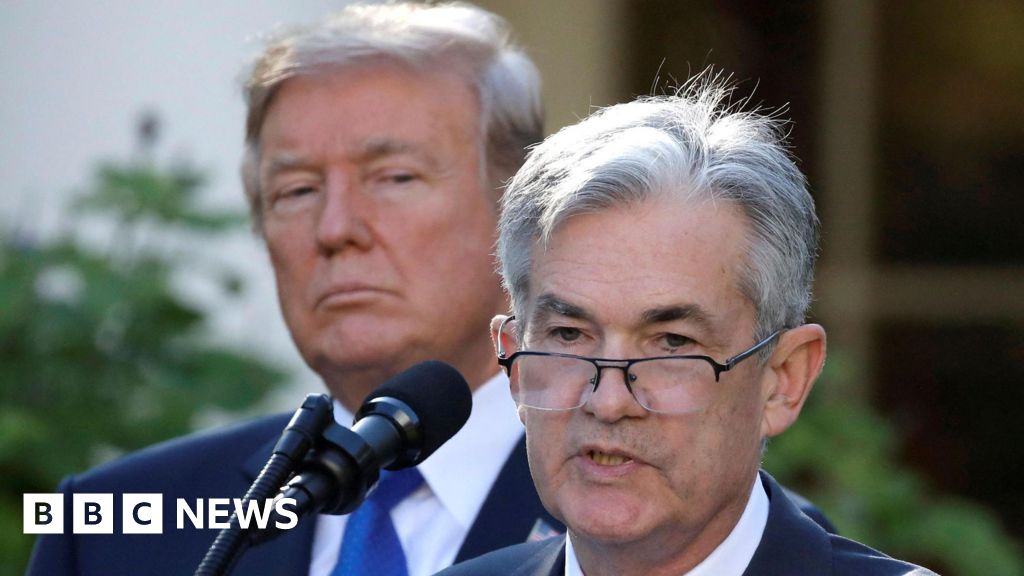Your support helps us to tell the story
From reproductive rights to climate change to Big Tech, The Independent is on the ground when the story is developing. Whether it’s investigating the financials of Elon Musk’s pro-Trump PAC or producing our latest documentary, ‘The A Word’, which shines a light on the American women fighting for reproductive rights, we know how important it is to parse out the facts from the messaging.
At such a critical moment in US history, we need reporters on the ground. Your donation allows us to keep sending journalists to speak to both sides of the story.
The Independent is trusted by Americans across the entire political spectrum. And unlike many other quality news outlets, we choose not to lock Americans out of our reporting and analysis with paywalls. We believe quality journalism should be available to everyone, paid for by those who can afford it.
Your support makes all the difference.
The parent company of Google, Alphabet, saw its share price open on Wednesday more than seven per cent lower than Tuesday’s close, following their latest financial results release.
Despite further rises in both revenue and profits, shareholders were not impressed. The exiting of positions in after-hours trading began immediately, with the sell-off knocking somewhere around the $175bn (£140bn) mark off the total value of the company.
From a purely business financials perspective, a large part of the reason for the sell-off stemmed from slowing growth in data centres revenue. Google’s cloud business is a huge money driver and posted a 30 per cent increase in revenues, totalling nearly $12bn (£9.6bn).
But while this is still growth, it’s slower growth than what had come before (35 per cent increase in the previous three months) and a lower amount than the predicted $12.2bn from analysts. Generally speaking, investors do not appreciate slowing growth, as it suggests higher valuations (which are reflected in the share price) cannot be maintained or increased over longer periods.
Even so, there is apparently another factor at play here: artificial intelligence, and particularly the amounts being spent on AI. Investors, it seems, are taking a more careful stance there now.
It’s not hard to see why of course. Last week’s DeepSeek release and the immediate impact on share prices to companies in the AI sphere, such as Nvidia, sparked fear (or excitement, depending on your perspective) that the huge sums being spent on it by American companies was perhaps overdoing it.
Sundar Pichai, Alphabet’s chief executive, clearly remains bullish about it though. He said: “The fourth quarter was a strong quarter driven by our leadership in AI and momentum across the business. We are building, testing, and launching products and models faster than ever, and making significant progress in compute and driving efficiencies.
“We are confident about the opportunities ahead, and to accelerate our progress, we expect to invest approximately $75bn (£60bn) in capital expenditures in 2025.”
Not just Alphabet under pressure
No slowing down from Google, then.
But their expenditure on AI was already ahead of the curve. The FT reported AI-related spending was $14.3bn in the fourth quarter, over a billion dollars more than had been expected.
Alphabet isn’t the only big company expected to show bigger returns for ever-bigger spending on AI, and quickly.
Tesla, Amazon and Apple haven’t been too impacted in share price terms just yet, and Meta saw a slight rise after their earnings report last week.
But Microsoft is down more than seven per cent in a week since their release, where they announced AI spending would be $80bn for the year.
Amazon report earnings on Thursday after hours, while Nvidia – whose share price is down 17 per cent in the past month – report towards the end of the month.
The companies themselves are doubling down on spending relating to expectations of a longer-term gain.
“The cost of actually using [AI] is going to keep coming down, which will make more extraordinary use cases feasible,” Pichai said. “That’s the opportunity space. It’s as big as it comes, and that’s why you’re seeing us invest to meet that moment.”
Analysts are not so sure, which is likely reflected in investor confidence.
Expectation of ‘flawless execution’

“In a period when we have seen AI supposedly become less capital intensive with the introduction of DeepSeek, Alphabet has committed a 43 per cent increase in capital expenditure for 2025. This is great news for the likes of Nvidia, but for Alphabet we are yet to see a real return on investment on AI spend, so there is a risk that it could be money not being well spent and disappear into a virtual black hole,” said Quilter technology analyst Ben Barringer.
At AJ Bell, Dan Coatsworth offered similar thoughts.
“Alphabet is being punished for missing quarterly revenue expectations […] and for going heavy on AI-related spending. Investors expect flawless execution from the tech giant, yet weaker than expected growth in cloud computing implies the AI craze isn’t automatically turning into big bucks for infrastructure providers.
“Equally worrying was the $75bn guidance for capital expenditure. Previously, large capex would have been taken as a positive sign that Alphabet was doing everything it could to capitalise on the hot AI trend. Now the reverse is true. There are fears it might be digging itself a big hole and potentially wasting money if rivals like DeepSeek have shown it is possible to do things a lot cheaper.”
As ever, context is required.
Alphabet’s $75bn expenditure is enormous of course, but in just the fourth quarter of 2024, they reported record revenue of $96bn. They can afford to bet big because of the position they are already in – but they are also doing so because they believe the rewards will be handed back many times over…in time.
To add further context, even with the price dropping on Wednesday, shares are up around 40 per cent in the past year. That kind of return would be highly prized in other arenas.
Big tech continues to push the limits in every way imaginable, both to positive and negative extremes, some may say. With AI, as with other emerging technologies, the proof will only be unveiled in the future.
For now, investors need to be on board with Pichai and co believing this is the right way forward, or else seek other places for their own funds to go to work, because none of the Magnificent Seven look like slowing down on backing AI as a huge part of their futures.















































